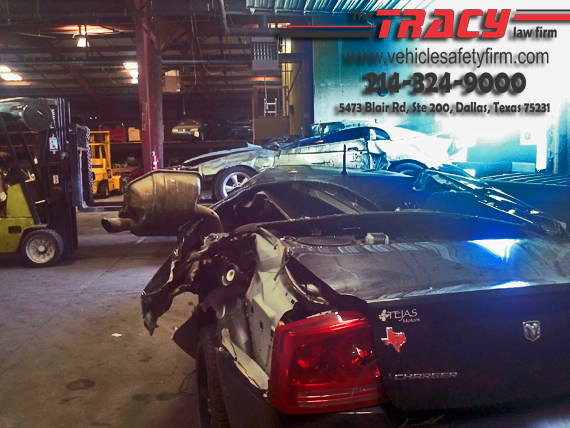Following a previous recall, U.S. Transportation Secretary Anthony Foxx announced that the recall of more than 2.12 million Acura, Dodge, Jeep, Honda, Pontiac, and Toyota vehicles for a defect that may cause airbags to deploy even when the vehicle is not involved in crash. This recall will provide vehicle owners with a new solution because the first attempt from these vehicle manufacturers failed to fix the defects with the airbags. The serious problem here is that it might take the vehicle manufactures more than a year to fix this issue since the replacement parts might not be available until the end of the year!

“Keeping the traveling public safe is our number one priority, and we expect the manufacturers to get this remedy right to prevent injury to drivers and their families,” Foxx said. “This is unfortunately a complicated issue for consumers, who may have to return to their dealer more than once,” said NHTSA Administrator Mark Rosekind. “But this is an urgent safety issue, and all consumers with vehicles covered by the previous recalls should have that remedy installed. Even though it’s a temporary solution until the new remedy is available, they and their families will be safer if they take the time to learn if their vehicle is covered and follow their manufacturers’ instructions. A hassle is much better than a family tragedy.”
Table of Contents
ToggleNHTSA said they will take a series of additional steps to ensure safety including:
- Seeking additional information from TRW, which made the electronic part believed to be involved in the inadvertent deployments, about the potential defect, its causes, and whether other makes or models might be affected.
- Seeking information from the automakers about how quickly they can make the new, more effective remedy available.
“NHTSA is committed to using every tool available to make our roads safer, and that includes using our authority and influence to make sure companies are doing what they should do to protect safety,” Rosekind said.
What vehicles are being recalled?
- 2002-2003 Jeep Liberty and 2002-2004 Grand Cherokees (about 750,000 vehicles)
- 2003-2004 Honda Odysseys and 2003 Acura MDXs (about 370,000 vehicles)
- 2003-2004 Pontiac Vibes, Dodge Vipers, Toyota Corolla, Toyota Matrixes and Toyota Avalons (about 1 million vehicles, not all of which were sold in the United States)
What is wrong with these vehicles?
Each of these models has a part called an electronic control unit that controls deployment of its airbags. An auto parts maker, TRW, supplied control units containing the same control circuit to all three automakers. The defect can cause the airbag to deploy when it shouldn’t – that is, when there is no crash to trigger their deployment. That can cause injuries to occupants and, possibly, cause a crash.
Aren’t some of these vehicles also involved in the problem with Takata airbags?
Yes; about 1.2 million vehicles made by Toyota and Honda that are the subject of these recalls have also been recalled because a defect in their airbags may cause them to deploy with too much force, breaking apart the airbag mechanism and causing parts to fly at high speed into the passenger compartment. The fact that the electronic defect could cause an inadvertent deployment in airbags that may rupture and injure occupants means it is doubly important for consumers to get their vehicle fixed as soon as a remedy is available.
Vehicle Crashworthiness from the defects in Airbags:
The Tracy Firm – Law Office of E. Todd Tracy for vehicle product liability, has been holding vehicle manufacturers as well as as automotive parts manufacturers like Takata Corporation and TRW Automotive liable and accountable for the negligence in manufacturing defective vehicle parts. We specialize in only handling vehicle safety defect cases causing serious personal injuries for more than 2 decades and all across the United States.
If you or your loved ones are are seriously injured due to airbag explosion without accidents in vehicles recalled by Honda, Toyota and Chrysler ; please contact our law office at 214-324-9000.
Source: NHTSA, TRACY Law Firm | Original Publication: Feb 1st 2015

